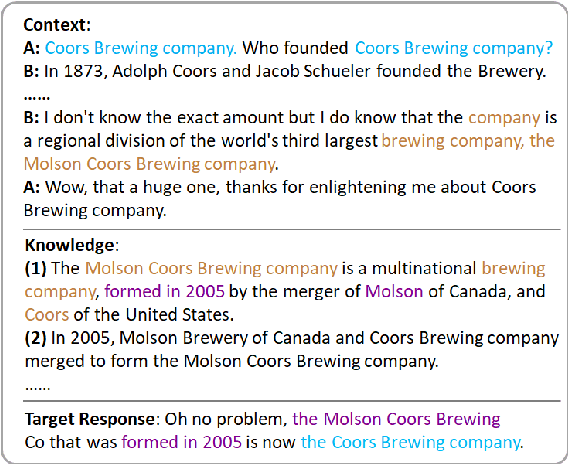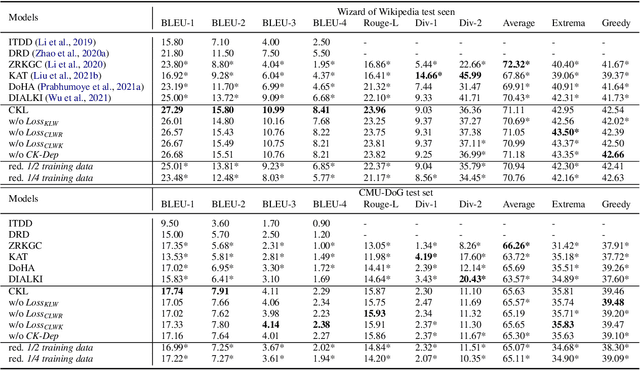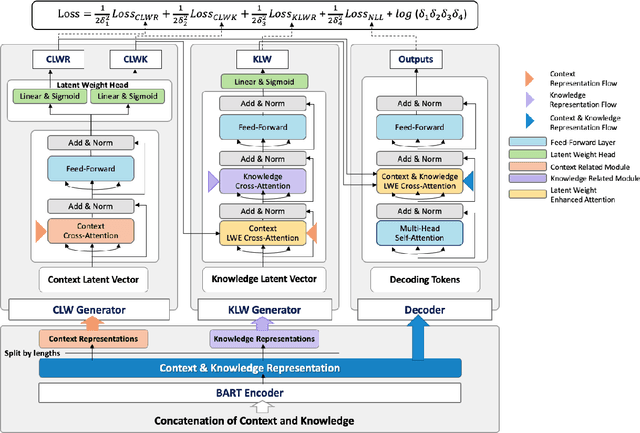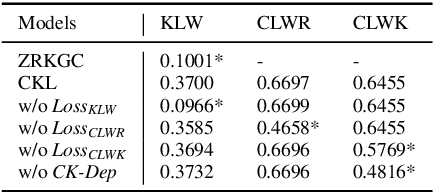Natasa Milic-Frayling
Instantiation-based Formalization of Logical Reasoning Tasks using Language Models and Logical Solvers
Jan 28, 2025Abstract:Robustness of reasoning remains a significant challenge for large language models, and addressing it is essential for the practical applicability of AI-driven reasoning systems. We introduce Semantic Self-Verification (SSV), a novel approach that addresses the key challenge in combining language models with the rigor of logical solvers: to accurately formulate the reasoning problem from natural language to the formal language of the solver. SSV uses a consistency-based approach to produce strong abstract formalizations of problems using concrete instantiations that are generated by the model and verified by the solver. In addition to significantly advancing the overall reasoning accuracy over the state-of-the-art, a key novelty that this approach presents is a feature of verification that has near-perfect precision over a significant coverage of cases, as we demonstrate on open reasoning benchmarks. We propose such *near-certain reasoning* as a new approach to reduce the need for manual verification in many cases, taking us closer to more dependable and autonomous AI reasoning systems.
Contextual Knowledge Learning For Dialogue Generation
May 29, 2023



Abstract:Incorporating conversational context and knowledge into dialogue generation models has been essential for improving the quality of the generated responses. The context, comprising utterances from previous dialogue exchanges, is used as a source of content for response generation and as a means of selecting external knowledge. However, to avoid introducing irrelevant content, it is key to enable fine-grained scoring of context and knowledge. In this paper, we present a novel approach to context and knowledge weighting as an integral part of model training. We guide the model training through a Contextual Knowledge Learning (CKL) process which involves Latent Vectors for context and knowledge, respectively. CKL Latent Vectors capture the relationship between context, knowledge, and responses through weak supervision and enable differential weighting of context utterances and knowledge sentences during the training process. Experiments with two standard datasets and human evaluation demonstrate that CKL leads to a significant improvement compared with the performance of six strong baseline models and shows robustness with regard to reduced sizes of training sets.
Benchmarking Arabic AI with Large Language Models
May 24, 2023Abstract:With large Foundation Models (FMs), language technologies (AI in general) are entering a new paradigm: eliminating the need for developing large-scale task-specific datasets and supporting a variety of tasks through set-ups ranging from zero-shot to few-shot learning. However, understanding FMs capabilities requires a systematic benchmarking effort by comparing FMs performance with the state-of-the-art (SOTA) task-specific models. With that goal, past work focused on the English language and included a few efforts with multiple languages. Our study contributes to ongoing research by evaluating FMs performance for standard Arabic NLP and Speech processing, including a range of tasks from sequence tagging to content classification across diverse domains. We start with zero-shot learning using GPT-3.5-turbo, Whisper, and USM, addressing 33 unique tasks using 59 publicly available datasets resulting in 96 test setups. For a few tasks, FMs performs on par or exceeds the performance of the SOTA models but for the majority it under-performs. Given the importance of prompt for the FMs performance, we discuss our prompt strategies in detail and elaborate on our findings. Our future work on Arabic AI will explore few-shot prompting, expand the range of tasks, and investigate additional open-source models.
 Add to Chrome
Add to Chrome Add to Firefox
Add to Firefox Add to Edge
Add to Edge